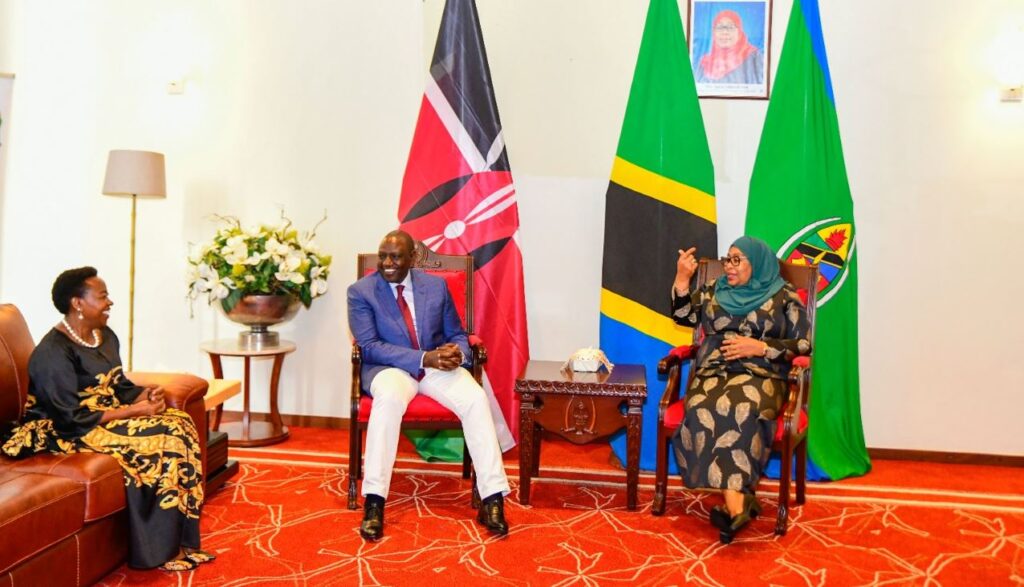- Non-tariff trade barriers are restrictions trade blocs impose to further their political and economic goals.
- Kenya and Tanzania are working on resolving non-tariff trade barriers that have stifled business between East Africa’s largest economies.
- Kenya is a crucial partner for Tanzania and is the largest source of African Foreign Direct Investment in Tanzania.
The East African Community
Countries have adopted regional trading blocs as a strategy to increase global competitiveness. The East African Community (EAC) member states are dedicated to enhancing economic efficiency and fostering regional integration through strategic investments using established industries.
EAC aims to position the Community as a single investment area, harmonising trade policies, investment incentives, and product standards.
At the beginning of its operations, EAC ended non-trade barriers (NTB) between member countries intending to liberalise trade. However, this affected the NTB imposed by the members, especially Kenya and Tanzania, who are critical traders in the market.
Non-tariff trade barriers are restrictions trade blocs impose to further their political and economic goals. Such barriers include quotas, sanctions, levies, and embargoes.
The persistence of NTBs continues to affect intra-EAC trade negatively. Due to persistent trade disputes and non-tariff barriers (NTBs), which restrict intra-regional trade and undermine the regional integration agenda, EAC states have sometimes opted to trade more with countries outside the bloc.
Nevertheless, efforts have been made to resolve the existing NTBs and encourage partner states to refrain from imposing new ones in line with the commitment under the EAC Customs Union Protocol.
In collaboration with partner states, the Secretariats are addressing barriers that impede trade to increase intra-EAC trade in the coming years. So far, the EAC has resolved 23 out of 33 NTBs.
Impact of non-tariff trade barriers on trade in the East African Communities
Trade barriers have both positive and negative impacts on countries under trading blocks. As such, trade barriers have become an important trade policy issue among the East African Community member states.
Non-tariff and technical barriers reduce the gains from trade liberalisation arising from tariff reductions. Their unpredictability continues to influence trade patterns and restrict market access to regional exporters, thus denying consumers welfare-enhancing opportunities from access to reasonably priced regional imports.
Non-tariff trade barriers also encourage uneven competition and entry of illegal products in member countries. However, ending some trade barriers can help member countries grow their economies by encouraging international trade.
For instance, Kenya and Tanzania are working on resolving non-tariff trade barriers that have stifled business between East Africa’s largest economies.
Read Also: EAC: Maximum tax tariff rate to boost intra-EAC trade
Kenya and Tanzania move to abolish non-tariff trade barriers
Kenya is a crucial economic partner for Tanzania and is the largest source of African Foreign Direct Investment in Tanzania.
However, instead of focusing on cooperation to boost trade and regional growth, the two countries continue to compete, and historical rivalries have seen substantial barriers imposed against doing business across borders despite the countries being signatories to the EAC Common Market Protocol (CMP), which guarantees free movement of goods, services, capital, and investments.
In 2016, President John Pombe Magufuli of the United Republic of Tanzania and Kenya’s Uhuru Kenyatta agreed to strengthen trade ties and address trade bottlenecks between the two countries through bilateral negotiations.
Negotiations followed with Kenya’s current President, William Samoei Ruto and Tanzania’s President, Samia Suluhu, in May 2021, marking a significant turning point in Kenya-Tanzania trade relations. The two successfully negotiated the removal of 23 trade barriers, paving the way for enhanced economic cooperation.
The breakthrough contributed to a substantial increase in bilateral trade. Statistics by the Central Bank of Kenya show that the country’s exports to Tanzania jumped by 46 per cent, extending a good trade run between the pair amid the ongoing elimination of non-tariff barriers.
Inside the 8th bilateral negotiation in Kisumu, Kenya
In recent negotiations, Rebecca Miano, Kenya’s Trade Cabinet Secretary, and Tanzania’s Deputy Minister of Foreign Affairs and East Africa Cooperation Stephen Byabato sealed the deal in Kisumu during the eighth bilateral meeting to resolve longstanding trade barriers.
Kenya agreed to clear timber imports from Tanzania at Lunga Lunga/Horohoro and facilitate the clearance of spirits (Konyagi), which the Kenya Bureau of Standards had detained at the Namanga border.
Kenya resumed tea exports to Tanzania, which had been halted.
Of the 14 issues discussed in the meeting held in Kisumu, only three were fully resolved, pending another bilateral meeting in Tanzania in July 2024.
The officials further agreed on the holistic harmonisation of levies, fees, charges, and other conditions affecting trade between the two countries.
Although the current bilateral trade between the two East African powerhouses stands at $0.9 billion, the figures could be significantly higher were it not for the non-tariff barriers, including restrictive regulations, licensing requirements, quotas, embargoes, foreign exchange restrictions, and import deposits.
